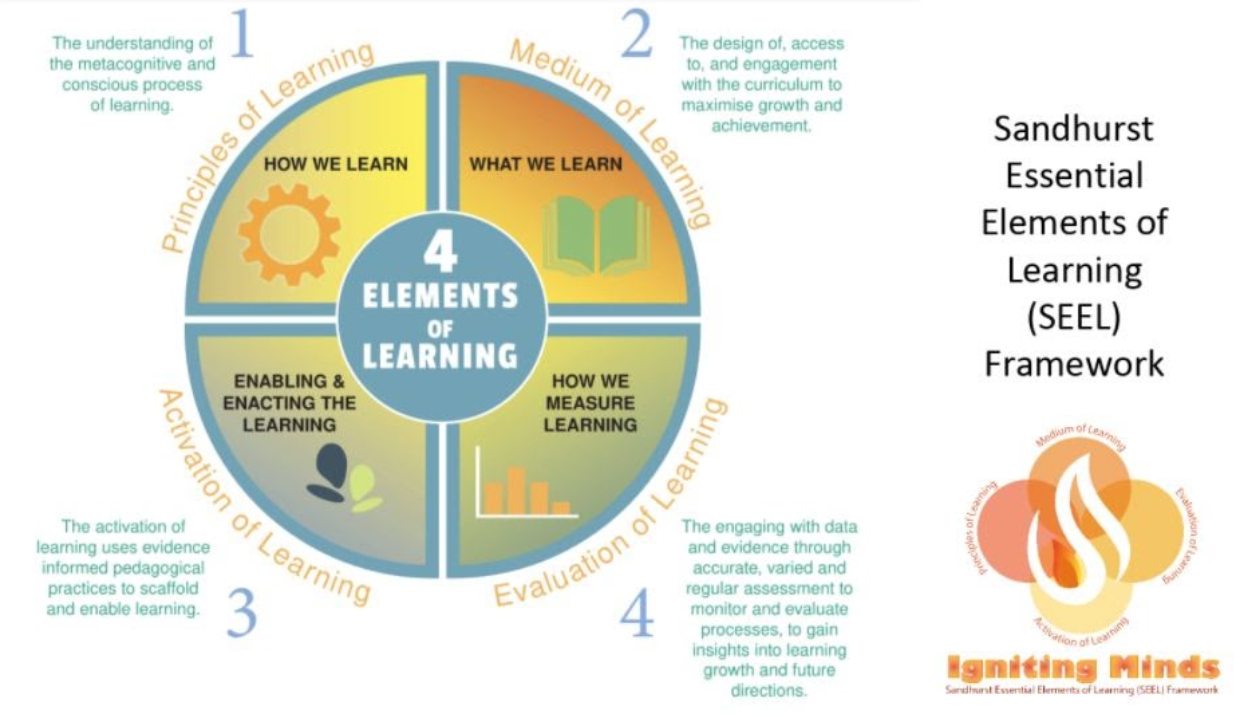The Practice Principles for Excellence in Teaching and Learning provide a foundation for the conversations, collaborations and actions at the centre of all teaching and learning. Replacing POLT, these principles articulate how teachers can deliver the curriculum and engage students.
They are designed to link directly to a school’s documented teaching and learning program. The Nine principles help develop professional practice through collaboration and an evidence based approach. (Department of Education and Training Victoria, 2019).
In Sandhurst we also consider the Sandhurst Essential Elements of Learning Framework when making Learning and Teaching decisions:

Applying the Principles to Religious Education
Religious Education intends to awaken learners intellectually by:
• encouraging critical thinking and inquiry;
• firing imaginative capacity;
• enlightening experiences with reason; and
• broadening perspectives through Scripture and Tradition.
Religious Education intends to awaken learners ethically by:
• forming moral character;
• arousing a desire for wisdom;
• attuning minds and hearts to the attitudes of Jesus; and
• promoting responsibility and integrity in living.Religious Education intends to awaken learners spiritually by:
• relating human life to the mystery of God;
• valuing the interior life and capacities;
• developing prayerful and liturgical habits; and
• connecting compassion with justice.

Follow